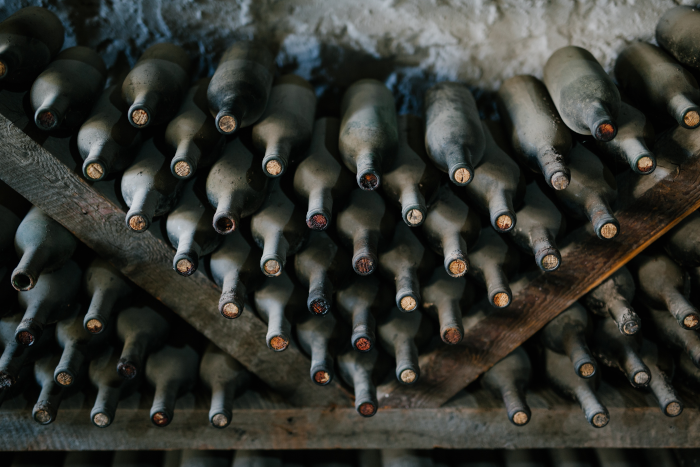The Rise of Natural and Organic Wine Production
Discover the amazing world of natural and organic wine.

Natural and organic wine production has dramatically increased in recent years. This sector is expanding as a result of customer demand as well as environmental concerns.
More winemakers are hopping on board to cash in on this trend as more people become aware of the advantages of consuming organic and natural wines in terms of the environment, economy, and health.
In this article, we will explore the rise of natural and organic wine production, discuss its effects on the wine industry, and share some tips for choosing quality natural and organic wines.
History of Production
Natural and organic wine production has been a part of winemaking for generations. The concept of producing wines without the aid of commercial yeasts or sulfites dates back to ancient times. The history behind natural and organic winemaking is an interesting one, with many twists and turns along the way.

In the early days, people relied on wild yeasts to ferment their grapes into wine - a process that was imprecise but nevertheless yielded delicious results. As chemical fertilizers and pesticides began entering vineyards in the 19th century, it became increasingly difficult to produce natural wines without industrial additions like additives or preservatives.
It wasn't until later in the century that there was a resurgence of interest in making naturally-produced wines as more people sought out healthier alternatives to traditional winemaking methods.
Health Benefits of Natural and Organic Wines
Organic and natural wines have become increasingly popular in recent years, as more people are looking for healthier options when it comes to their favourite beverages. Organic and natural wines offer many health benefits and can be an excellent choice for those who like to indulge in a glass of wine but also want to maintain a healthy lifestyle.
Organic wine is made from organic grapes that are grown without the use of synthetic pesticides or herbicides, making them much safer for consumption than non-organic varieties.
Additionally, organic wines contain fewer sulfites than conventionally produced wines, which can help prevent some potential adverse reactions such as headaches after drinking.
Natural wine is made with minimal chemical intervention, meaning it isn’t exposed to additives such as sugar or preservatives during production - this helps keep the beverage free from any potentially harmful chemicals.
Growing Popularity of Natural and Organic Wines
The popularity of natural and organic wines is steadily increasing, with more consumers now buying these types of beverages over conventional ones.

Natural and organic wines are made from grapes that are grown organically, free from synthetic pesticides or other chemicals. This makes them a healthier option for people who may be sensitive to certain additives often found in conventional wines.
Environmental impact is also a major factor driving the growth in demand for natural and organic wines. These products are produced sustainably and responsibly which minimizes the environmental footprint compared to traditional methods of wine-making.
Furthermore, organic practices help protect the soil by using composts and cover crops as fertilizers instead of chemical fertilizers, reducing runoff into waterways.
The flavours of natural and organic wines have been praised too due to their unique characteristics that come from minimal intervention during production processes.
Challenges of Natural and Organic Winemaking
Despite its popularity, there are a number of challenges that come with organic and natural winemaking.
The first challenge is in obtaining organic or biodynamic grapes. Organic viticulture requires special care in terms of pesticide management, crop rotation, soil fertility management, water usage, etc., which can be difficult to maintain on a large scale.
Additionally, biodynamic viticulture is even more labour-intensive as it involves additional steps such as planting according to the lunar cycle or burying cow horns filled with manure in the vineyards.
Resources to Find Natural and Organic Wines
Because they are made from organic grapes and other ingredients, they can be difficult to find in local shops. However, with the help of some specialist websites, you can easily find your favourite bottle from the comfort of your own home.
Vinissimus, for example, offers a wide range of certified organic wines direct from wineries.
Conclusion
In conclusion, the emergence of natural and organic wine production is a good thing for the industry because it offers a less additive-heavy option to conventional wines with a smaller environmental impact.
As more individuals see the value of sustainable practices in all facets of consumption, this trend is likely to continue. It gives winemakers the chance to distinguish their goods and take advantage of an expanding market share. In the end, purchasing wine that has been produced sustainably can benefit us all and help the environment.
You May Be Also Interested in